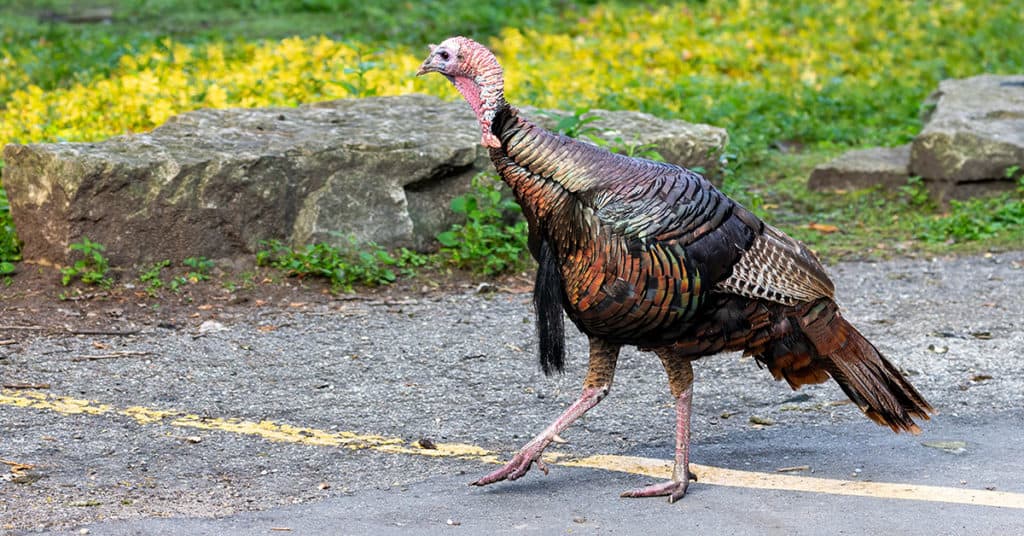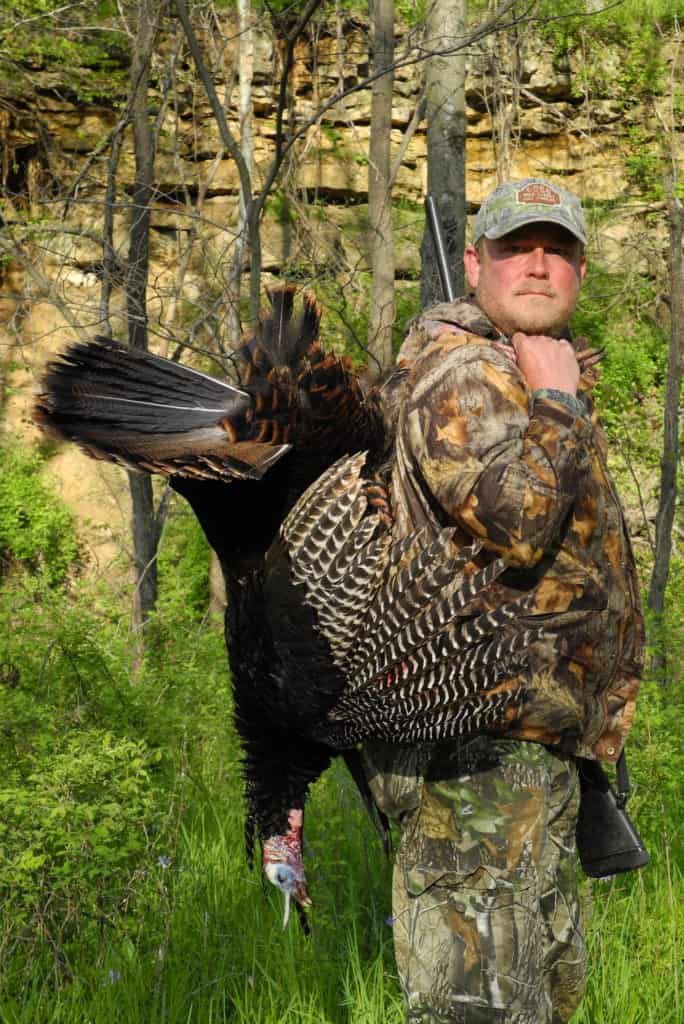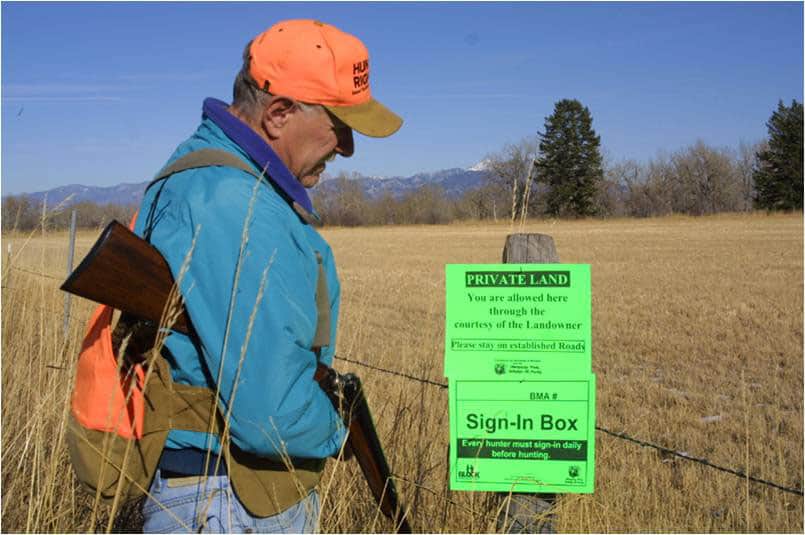Tips for Hunting Suburban Gobblers
by Kenneth L. Kieser
It’s the start of turkey hunting season in many parts of the country…but where is the best place to turkey hunt? Some of the most unexpected and overlooked places are just beyond city limits, and they could offer the best turkey hunting of your life.

Several years ago, I was invited on a turkey hunt close to my home. The privately-owned area had everything a gobbler could want: cover, food, water and plenty of hens.
The area was in a small valley and out of shotgun range from any structure. Problem was, we were just outside the city limits and close enough to town to hear the university’s bells chime every hour.
The owner of the property gave my friend permission to hunt but with conditions. We were to stay several hundred yards from his house, only one bird was to be shot, and only one hunter could carry a shotgun.
I was only photographing the hunt, but I still felt concerned about whether or not the hunt was legal. My host assured me he had checked the local ordnances on hunting outside the city limits, and we were fine. We knew the area and were confident nothing beyond the woods could be harmed by a shotgun blast of flying turkey load.
We settled back and observed quite a show. My friend’s calling imitation of a love-sick hen produced six different gobbles from the nearby woods.
Soon dominate and sub-dominant gobblers walked briskly up the small hill to our three decoys. The morning sun highlighted their bronze feathers and bright red heads. The gobblers had love on their minds and made a wide circle before moving towards our decoys. The largest gobbler looked around for signs of danger before moving closer.

This dominant gobbler had never been hunted, and for good reason.
The big boy strutted and postured around the decoys in an act of dominance. A clean shot dropped the gobbler of trophy dimensions with a 13-inch beard and 1 ¾-inch spurs. The hunt ended minutes after it began.
Those turkeys had never been hunted and for good reason; they were far enough from the road to never get noticed by human eyes. The few who actually knew the birds were there may not have realized they could be hunted legally.
This was privately owned land, and my friend gained permission to scout and then hunt. We enjoyed a world-class eastern gobbler hunt 20 minutes from my home.
Gobblers and deer have become fringe creatures that live close to well-populated areas. Some town residents never realize critters live close by in wood strips unless their flowers are destroyed or they see tracks.
Hunters often run into the same type of scenario while chasing migrating waterfowl down flyways. I legally hunt waterfowl 500 yards outside of city limits. Again, this is all privately-owned property, and there are many factors to consider—for example, asking permission to hunt.
ASKING PERMISSION
My uncle was a livestock feed salesman in the 1960s and 1970s. He always carried an extra pair of coveralls and old boots when meeting farmers. He offered to help when they were ringing pigs, throwing hay bales or doing some other chore. He sold tons of feed and became his company’s top salesman for Missouri.
The point is, show a landowner kindness, and they may allow you to hunt. Several of my friends take landowners care packages after hunts that may include candy, candles, meat, cheese, magazine subscriptions or any number of items the farmer’s family will enjoy. This sometimes creates a relationship that lasts many years.
When you can’t get permission, be respectful and find another place to hunt. Several years ago, a young trespasser assured me he had permission from the landowner to hunt a property. I let him stretch the lie further before stating that I was the landowner and my next act would be to call the sheriff.
I recommend you carry a written note from the landowner saying you have permission to hunt his or her property. This is good to have when a well-meaning neighbor checks to see that you actually do have permission.
SAFETY
Common sense should always be present in all forms of shooting no matter where you hunt, but especially close to any town. Know exactly what is behind the woodlot where you plan to shoot.
Shotgun pellets may travel 250 yards. Shot falling around a landowner is a sure way to be asked to leave and never come back.
Landowners do not want their buildings, livestock or family jeopardized. Who can blame them? When you see game, make certain you only make a safe shot, with a good backstop for your shotgun pellets or bullets.
LEGALITIES
You can find this type of hunting opportunity across America, but don’t try it before checking local laws. Before hunting in an urban area, search the web for that city’s local ordinances (usually found in the weapons section of a city’s municipal code). Key words to use are “discharging a firearm.”
The greatest dove hunt of my life took place across the road from a small town. Someone had burnt out a field, and the doves were finding easy pickings for dinner. The nearby town’s regulations made it legal to hunt there, and we limited out several times.
The bottom line is checking all forms of state or city regulations to make sure you can legally hunt in the properties you select. When in doubt, ask a local policeman or conservation agent. Remember that, in most cases, federal and state laws supersede local laws.
TREAD LIGHTLY
Want to lose a good hunting area? Don’t pick up your trash or spent shotgun shell casings. Break down fences. Leave gates open. Spin deep tire ruts in a field and make careless shots that damage property or livestock. Few acts anger a farmer more.
When asking permission to hunt, assure the landowner you will leave the property just as you found it. Don’t be shy to pick up trash left by some other slob. The golden rule is to treat the landowner’s property as if it were your own.
Never bring other hunters on a landowner’s private property unless you contact the landowner first for permission.

When it comes to private property, always ask for permission and tread lightly.
Not all areas beyond city limits allow hunting, but some do. Find these areas and you might enjoy the best hunt of your life.
Other Articles You Might Like:
Leave a Springtime Legacy: Get Kids Involved in Turkey Hunting







